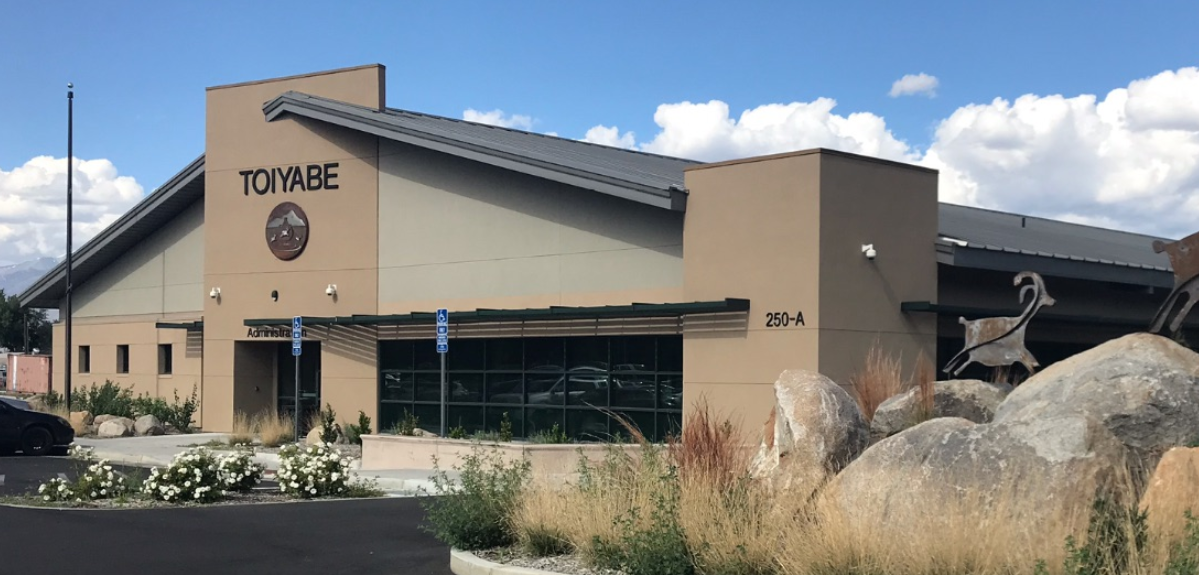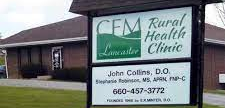Toiyabe Indian Health Project

Contact Details
-
Name:Toiyabe Indian Health Project
-
Address:199 Twin Lakes Road
Bridgeport, CA - 93517 -
Phone:530-495-2100
-
Email:
-
Website:
Description
There are currently state and federally funded or sponsored drug and alcohol treatment centers in the state of California
Questions & Answers
Help others like you find out more about Toiyabe Indian Health Project. Do you know the answers to any of these questions? Contribute now and help others like you.
What kinds of care do they offer?
-
Substance use treatment
Refers to a broad range of activities or services, including identification of the problem (and engaging the individual in treatment); brief interventions; assessment of substance abuse and related problems including histories of various types of abuse; diagnosis of the problem(s); and treatment planning, including counseling, medical services, psychiatric services, psychological services, social services and follow-up for persons with alcohol or other drug problems (Institute of Medicine, 1990).
What types of opioid treatment do they provide?
-
Buprenorphine maintenance
-
Prescribes buprenorphine
-
Prescribes naltrexone
What opioid medications are used in treatment?
-
Buprenorphine used in Treatment
Buprenorphine is used in medication-assisted treatment (MAT) to help people reduce or quit their use of heroin or other opiates.
-
Naltrexone used in Treatment
What specific pharmacotherapy treatments do they provide?
-
Naltrexone (oral)
-
Nicotine replacement
Administers nicotine to the body by means other than tobacco, without other harmful chemicals found in tobacco. Common forms of nicotine replacement therapy are nicotine patches, nicotine gum or lozenges, nasal spray and inhaler. The goal of nicotine replacement is to prevent cravings in a tobacco user, allowing the person to abstain from tobacco.
-
Non-nicotine smoking/tobacco cessation
Are medications that do not contain nicotine but act on the brain to reduce a person's craving for tobacco. Some common medications are Bupropion (Zyban, Wellbutrin), and Nortriptyline (Pamelor). Medications are often prescribed in conjunction with behavioral counseling or support groups to provide the best chance for achieving long-term smoking abstinence. (http://www.mayoclinic.com)
-
Acamprosate (Campral?)
Acamprosate is used in combination with psychological and social treatments as part of a full alcoholism treatment plan. It is recommended for people who are motivated to reach alcohol abstinence rather than to simply decrease drinking amounts.The mechanism of action is not exactly understood but it seems to help reduce cravings by reducing the positive response to drinking and reducing cravings. It is important to note that Campral does not help relieve the symptoms of alcohol withdrawal.
-
Buprenorphine with naloxone
A prescription medication that combines buprenorphine (which helps relieve symptoms of opiate withdrawal) and naloxone (reverse the effects of narcotics) used to treat opioid addiction.
-
Clonidine
-
Medication for mental disorders
What types of treatment approaches do they offer?
-
Telemedicine/telehealth therapy
The ability for healthcare providers, working from a distance using telecommunications technology, to communicate with patients, diagnose conditions, provide treatment, and discuss healthcare issues with other providers to ensure quality healthcare services are provided. Other names used for this treatment approach are: e-medicine, e-therapy, e-psychiatry, and telepsychiatry.
-
Motivational interviewing
A counseling approach which acknowledges that many people experience ambivalence when deciding to make changes. Its aim is not to focus immediately on the action of changing, but to work to enhance motivation to change.
-
Smoking not permitted
Smoking is not allowed.
What type of setting is this location?
-
Outpatient
Describes patients who receive treatment services without an overnight stay at a treatment facility or hospital.
-
Outpatient methadone/buprenorphine or naltrexone treatment
-
Regular outpatient treatment
Who is responsible for the operation of this facility?
-
Tribal government
A governing body of a group of Native American Indians or Alaska Natives that qualifies as an Indian tribal government determined by the Internal Revenue Services.
What types of payment or funding do they accept?
-
Cash or self-payment
Payment for treatment is made by the person directly, through cash or other means, rather than using health insurance.
-
Medicaid
A joint federal and state program that helps with medical costs for some people with low incomes and limited resources. Medicaid programs vary from state to state.
-
Medicare
The federal health insurance program for people age 65 and older and people with disabilities.
-
State-financed health insurance plan other than Medicaid
-
Private health insurance
-
Federal military insurance (e.g., TRICARE)
-
Federal, or any government funding for substance use treatment programs
Financial assistance provided by the federal, state, or local government for substance use treatment.
-
IHS/Tribal/Urban (ITU) funds
Direct funds from the Indian Health Service. They consist of tribal funds through "638 contracts" (named after the public law under which they were authorized) and/or urban funds through federal Title 5 grants. These funds are considered part of the India health care system and can be used for programs that provide behavioral health services as well as for programs that provide other health-related services.
-
SAMHSA funding/block grants
Mandated by Congress, SAMHSA's block grants are noncompetitive grants that provide funding for substance abuse and mental health services. Eligible entities must submit an annual application to demonstrate statutory and regulatory compliance in order to receive the formula-based funding. There are two block grant programs: (1) Substance Abuse Prevention and Treatment Block Grant (SABG); and (2) Community Mental Health Services Block Grant (MHBG).
What kinds of education and counseling services are offered here?
-
Individual counseling
Process through which clients work one-on-one with a trained mental health clinician in a safe, caring, and confidential environment.
-
Group counseling
Form of therapy where people with similar experiences/issues come together with a professional therapist.
-
Substance use disorder education
What genders are accepted here?
-
Female
-
Male
What kinds of transitional services do they provide if any?
-
Aftercare/continuing care
-
Discharge Planning
A process that aims to improve the coordination of services after discharge from the hospital by considering the patient?s needs in the community.
-
Naloxone and overdose education
What types of screening and assessment methods are used here?
-
Comprehensive mental health assessment
An examination used to ascertain whether or not a patient is functioning on a healthy psychological, social, or developmental level. It can also be used to aid diagnosis of some neurological disorders, specific diseases, or possible drug abuse.
-
Comprehensive substance use assessment
-
Screening for mental disorders
Test to determine whether a person is experiencing symptoms of mental health conditions and needs treatment.
-
Screening for substance use
Test to determine whether a person is experiencing symptoms of substance use and needs treatment.
-
Complete medical history/physical exam
What types of testing do they offer?
-
Drug or alcohol urine screening
Analyzes your urine for the presence of certain illegal drugs and prescription medications.
-
HIV testing
Determines whether you are infected with HIV, a virus that weakens the immune system and can lead to acquired immunodeficiency syndrome.
-
STD testing
Testing to determine the type of sexually transmitted disease a person may be carrying.
-
TB screening
Skin tests that are used to screen people who are at high risk for TB exposure such as people with diseases or conditions that weaken their immune system.
-
Metabolic syndrome monitoring
-
Testing for Hepatitis B (HBV)
Involves blood test that measure HBV (Hepatitis B virus) antigens and antibodies.
-
Testing for Hepatitis C (HCV)
Test for Hepatitis C, which is usually done and recommended for persons currently injecting drugs, ever injected drugs, were prior recipients of transfusions or organ transplants, or have certain medical conditions, including persons: 1. who received clotting factor concentrates produced before 1987 2. who were ever on long-term hemodialysis 3. with persistently abnormal alanine aminotransferase levels (ALT) 4. who have HIV infection
What ancillary services are offered at this facility?
-
Mental health services
Assessment, diagnosis, treatment or counseling in a professional relationship to assist an individual or group in alleviating mental or emotional illness, symptoms, conditions or disorders.
What types of recovery support services are offered here?
-
Self-help groups
Groups in which members share the same issue, condition, or situation and thus are in a position to provide help and support to each other.
What types of alcohol abuse treatment are available at this facility?
-
This facility administers/prescribes medication for alcohol use disorder
Who provides the medication used in alcohol abuse treatment?
-
Other contracted prescribing entity
What medical services do they offer?
-
Hepatitis A (HAV) vaccination
-
Hepatitis B (HBV) vaccination
Is vaping allowed at this facility?
-
Vaping not permitted
How do I apply for admission at this location?
Have you been to this facility? What was your experience?
Is there a wait-list for treatment center?
Is any payment required?
Related Posts
Rural Clinics
- Hawthorne, NV
- 38.02 miles away

